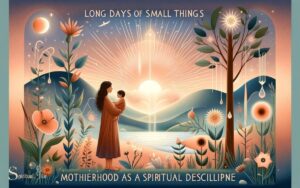Do Spiritual Things Exist: Cultural Backgrounds!
The existence of spiritual things is a topic that transcends empirical evidence and often relies on individual belief systems, cultural backgrounds, and personal experiences.
It is a subject that has been debated for centuries and continues to be a point of discussion among philosophers, theologians, and those who have had spiritual encounters.
Spirituality and the belief in spiritual things are deeply personal and vary greatly across different cultures and religions.
The concept of spirituality can include:
Exploring spirituality can lead to profound personal growth and understanding, regardless of whether tangible proof exists.
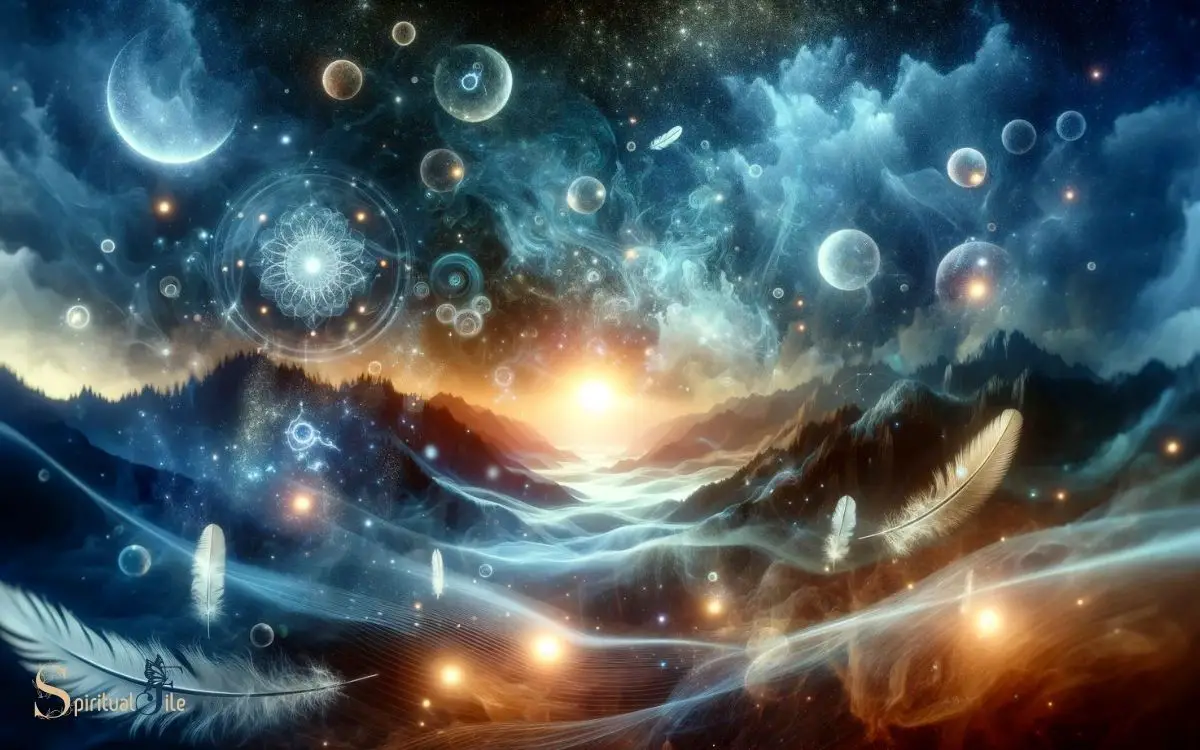
Key Takeaway
Exploring the Belief in Spiritual Entities and Phenomena
| Aspect of Spirituality | Description | Common Beliefs | Cultural/Religious Context |
|---|---|---|---|
| Higher Power/Deity | Belief in an omnipotent being or force that influences the universe. | Monotheism, Polytheism, Pantheism | Christianity, Islam, Hinduism, Indigenous religions |
| Soul/Spirit | The non-material essence of a person, often believed to survive after death. | Immortality of the soul, Reincarnation | Buddhism, Christianity, New Age spirituality |
| Non-Physical Entities | Beings without a physical form, often considered messengers or manifestations of the divine. | Angels, Demons, Spirit Guides | Christianity, Islam, Spiritualism |
| Afterlife | The life or state of existence believed to follow the death of the physical body. | Heaven, Hell, Nirvana, Ancestral planes | Christianity, Islam, Buddhism, African traditional religions |
| Paranormal Phenomena | Unexplained events that defy scientific understanding, often attributed to spiritual or supernatural forces. | Ghosts, Psychic abilities, Miracles | Paranormal studies, Occultism, Various religious contexts |
Historical and Cultural Perspectives
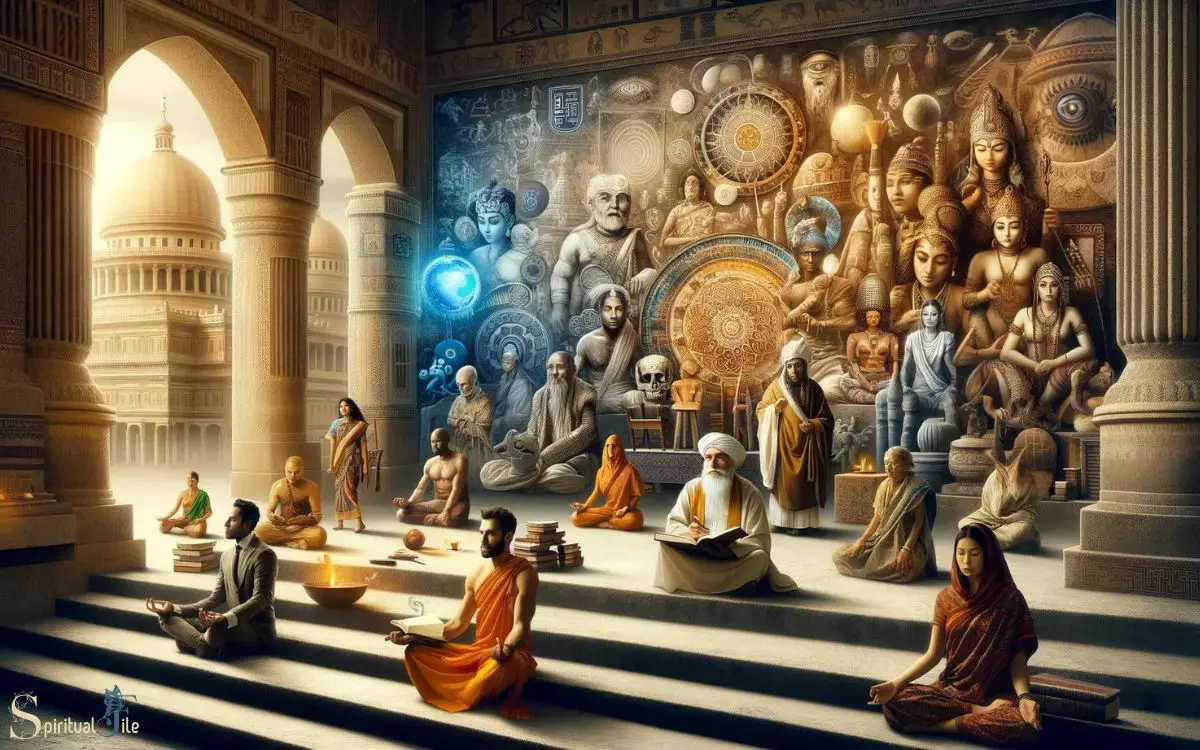
As a believer in the existence of spiritual things, it is important to consider historical and cultural perspectives to understand their significance in human experience.
Throughout history, spiritual beliefs have been integral to the human experience, shaping societies, traditions, and individual lives. Exploring the roots of these beliefs provides insight into their enduring influence.
From the ancient civilizations of Mesopotamia to the philosophical traditions of the East, spiritual concepts have evolved and intertwined with cultural practices, giving rise to diverse interpretations and expressions of the spiritual.
Understanding these historical and cultural perspectives allows us to appreciate the rich tapestry of spiritual beliefs and practices across different societies.
Scientific and Metaphysical Interpretations
From a scientific and metaphysical perspective, the exploration of spiritual things delves into the nature of reality and consciousness, seeking to understand their interconnectedness and implications for human existence.

Scientific Interpretation: Science often seeks to understand the world through empirical evidence and measurable phenomena.
In this context, the exploration of spiritual things may involve studying brain activity during religious experiences or examining the psychological effects of spiritual practices.
Metaphysical Interpretation: Metaphysics explores the fundamental nature of reality, including the relationship between mind and matter.
From this perspective, the exploration of spiritual things may involve pondering the existence of a non-physical realm or contemplating the nature of consciousness.
Interdisciplinary Approach: Some scholars advocate for an interdisciplinary approach that integrates scientific and metaphysical perspectives to gain a more comprehensive understanding of spiritual phenomena.
Personal Exploration: Individuals may personally explore spiritual experiences through meditation, prayer, or contemplation, seeking their own understanding of the nature of reality and consciousness.
Personal Experiences and Testimonials
I’ve had moments in my life that are difficult to explain or rationalize. These experiences have made a profound impact on me and have given me a sense of something beyond the ordinary.
They’ve led me to believe that there’s more to our existence than what can be easily defined or understood.
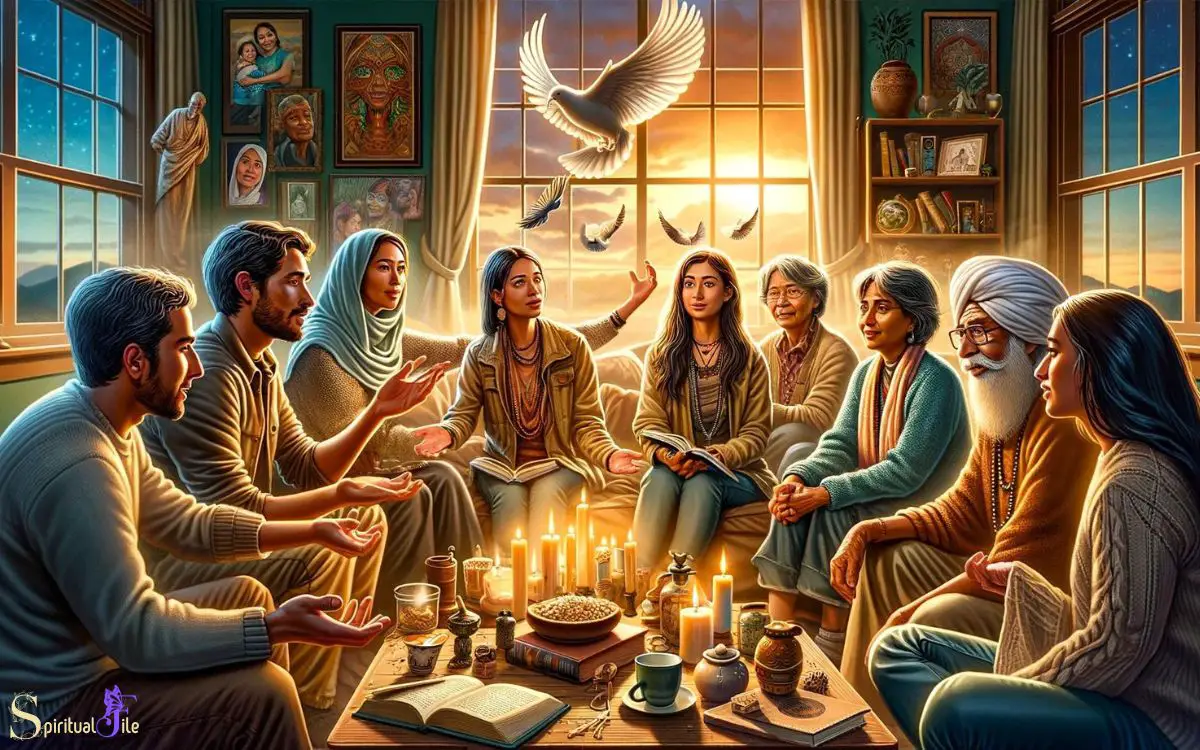
Real-Life Stories Illuminate
Through my own experiences, I have witnessed the profound impact of spiritual encounters on people’s lives.
Real-life stories illuminate the transformative power of spiritual experiences, offering insight into the depth of their impact.
Here are four compelling examples:
- A close friend found peace and healing through meditation after a difficult period of grief and loss.
- A family member experienced a profound sense of guidance and protection during a time of crisis, attributing it to divine intervention.
- A colleague spoke of a spiritual awakening that brought clarity and purpose to their life, leading to positive and meaningful changes.
- A neighbor shared how their faith provided strength and resilience during a challenging health battle, offering comfort and hope in the darkest moments.
These real-life stories not only shed light on the existence of spiritual things but also demonstrate their tangible, life-altering effects.
Impactful Encounters Transcend Explanation
In my own life, I have encountered experiences that transcend rational explanation, affirming the existence of spiritual things.
These encounters have often left me with a profound sense of awe and wonder, and they have defied any attempts to explain them through purely scientific or logical means.
One such experience occurred during a period of deep personal struggle when I felt an overwhelming sense of peace and guidance that seemed to come from beyond the physical realm.
This encounter not only provided me with comfort and reassurance but also challenged my previously held beliefs about the limitations of the material world.
While I understand the skepticism that may surround such experiences, for me, they have undeniably affirmed the presence of something greater than what can be easily understood or rationalized.
Shared Moments Inspire Belief
Experiencing shared moments with others has consistently reinforced my belief in the existence of spiritual things.
These moments have a profound impact on my understanding of spirituality, and here’s why:
- Validation: Sharing spiritual experiences with others validates my own encounters, making them feel more real and significant.
- Connection: The shared moments create a deep sense of connection with others, reinforcing the idea that spiritual things can bring people together.
- Perspective: Hearing about the spiritual experiences of others broadens my perspective and helps me see the diversity and depth of spiritual encounters.
- Support: Sharing these moments with others offers a sense of support and understanding, which strengthens my belief in the significance of spiritual things in our lives.
These shared experiences have a powerful impact, reminding me that spiritual things are indeed real and meaningful.
Exploring Paranormal Phenomena
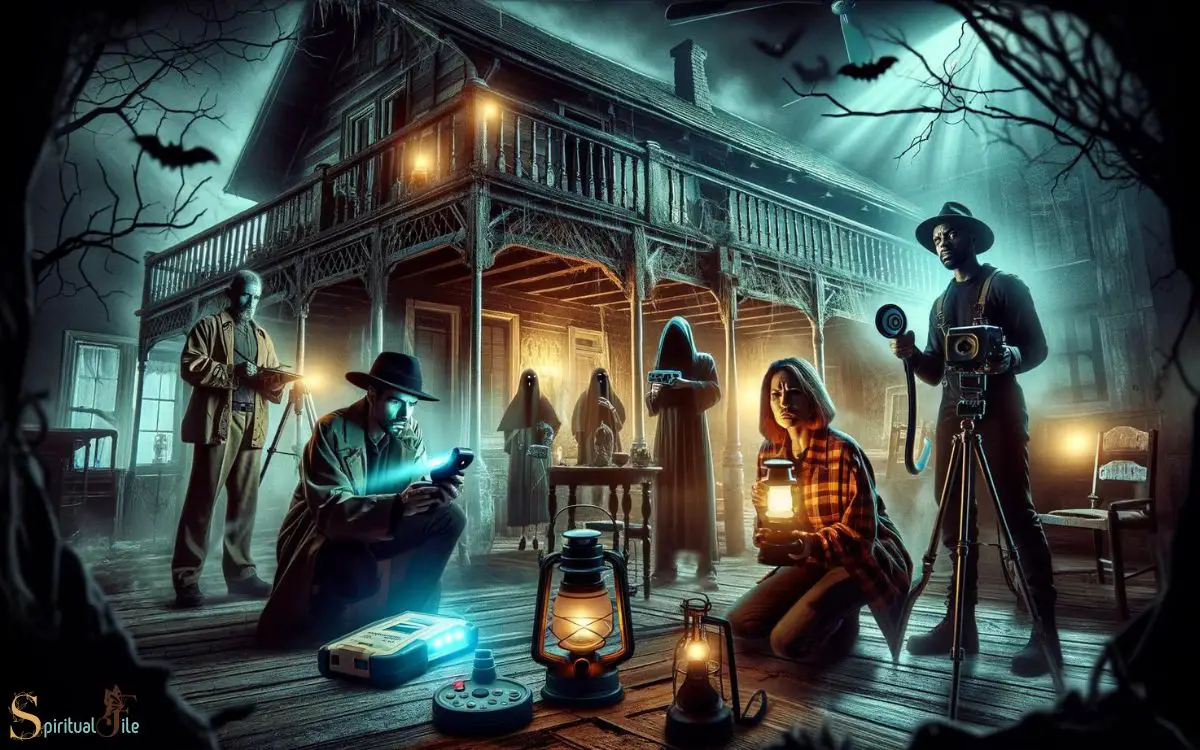
Investigating paranormal phenomena often leads to intriguing and unexplained experiences. I’ve delved into countless reports of ghost sightings, unexplained sounds, and inexplicable movements.
One particularly compelling case involved witnessing objects moving on their own during a paranormal investigation.
Despite my initial skepticism, I couldn’t deny what I saw. These unexplained events trigger a deep curiosity within me.
I’m drawn to understanding the unexplained and seeking logical explanations. While some dismiss paranormal phenomena as mere superstition, my experiences have left me open to the possibility of a world beyond our current understanding.
Exploring these phenomena has challenged my preconceptions and opened my mind to the vast mysteries that exist. It’s a journey that continues to both perplex and fascinate me.
The Intersection of Faith and Spirituality
During my exploration of paranormal phenomena, I have encountered moments that have sparked my curiosity about the intersection of faith and spirituality.
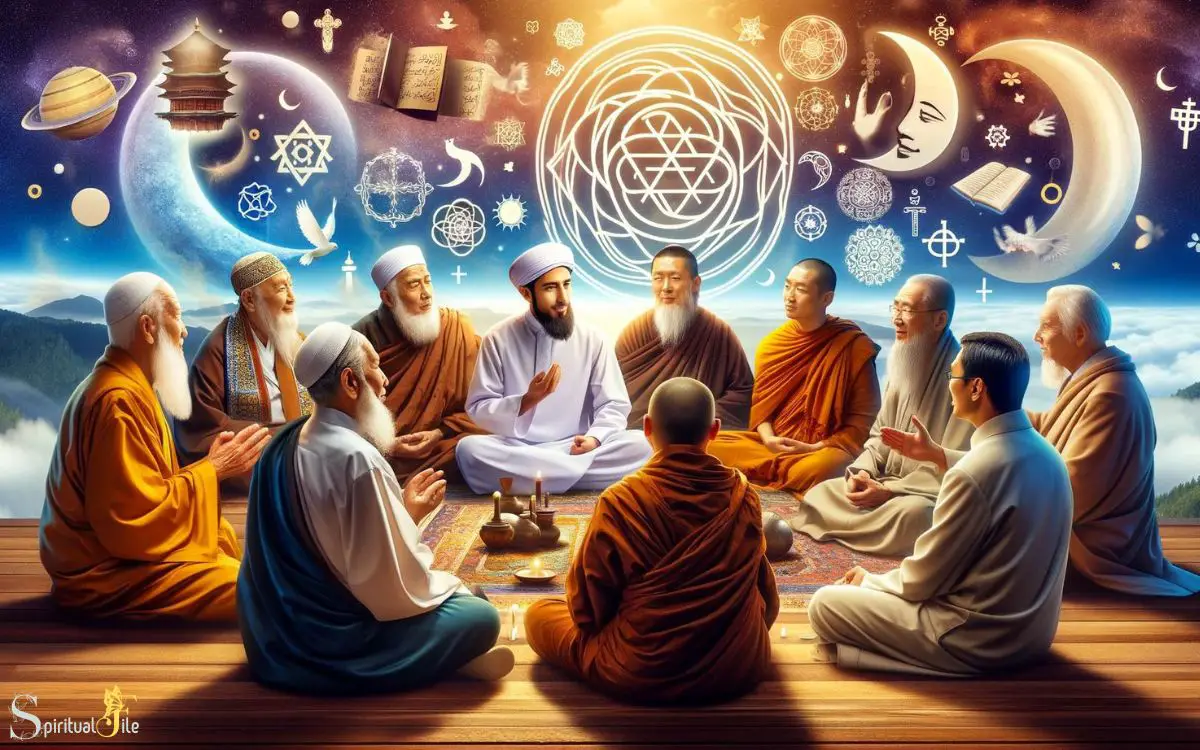
As I ponder the connection between these two concepts, I’ve come to realize a few key points:
- Shared Values: Faith and spirituality often center around shared values such as compassion, love, and forgiveness, fostering a sense of community and interconnectedness.
- Personal Growth: Both faith and spirituality can serve as a catalyst for personal growth, providing individuals with a sense of purpose and guiding principles for navigating life’s challenges.
- Transcendence: They offer a framework for transcending the mundane and seeking deeper meaning in existence.
- Cultural Influence: The intersection of faith and spirituality is heavily influenced by cultural and societal norms, shaping individual beliefs and practices.
As I navigate the search for meaning, it becomes clear that understanding the intersection of faith and spirituality is essential in exploring the depths of human experience.
Can Cultural Backgrounds Influence a Person’s Belief in Spiritual Things?
Cultural backgrounds play a significant role in shaping a person’s belief in spiritual things. In some cultures, being spiritual is good and encouraged, while in others it may not hold as much importance. Understanding and respecting different cultural beliefs can lead to a more inclusive and open-minded society.
Navigating the Search for Meaning
As someone seeking meaning, I often find myself contemplating the existence of spiritual things. It can be a challenging and deeply personal journey to navigate.
In my quest for understanding, I’ve found that exploring different perspectives and traditions can provide valuable insights into the search for meaning.
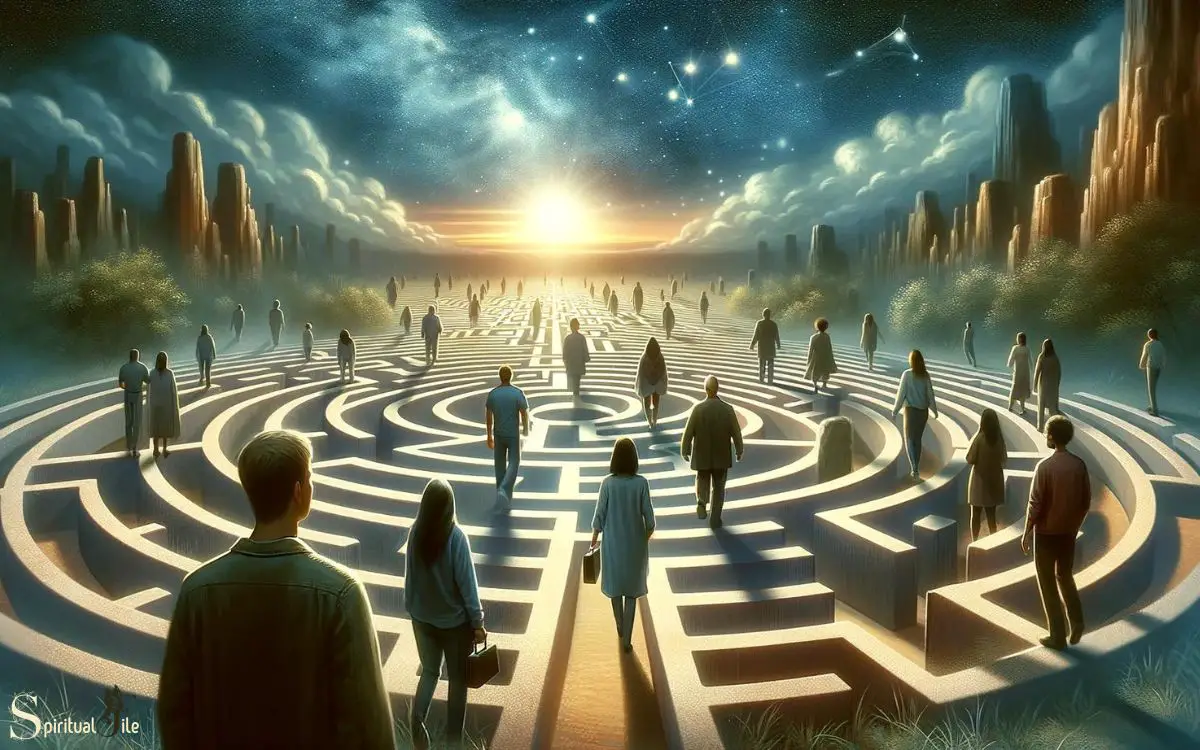
Here’s a comparison of key aspects to consider:
| Traditional Religion | Modern Spirituality |
|---|---|
| Structured practices and rituals | Emphasis on personal experience |
| Followers often identify with a specific faith | Focus on individual beliefs and journey |
| Hierarchical leadership | Emphasis on personal empowerment |
| Sacred texts as guiding principles | Diverse range of influences and sources |
Conclusion
As I ponder the question of whether spiritual things exist, I find myself standing at the crossroads of history and mystery, science and wonder, personal revelation and shared testimony.
It’s as if I’m caught between the tangible and the ethereal, the known and the unknown, the mundane and the mystical.
And in this juxtaposition of opposing forces, I find a beautiful dance of belief and skepticism, faith and doubt, guiding me on a journey of discovery and meaning.



